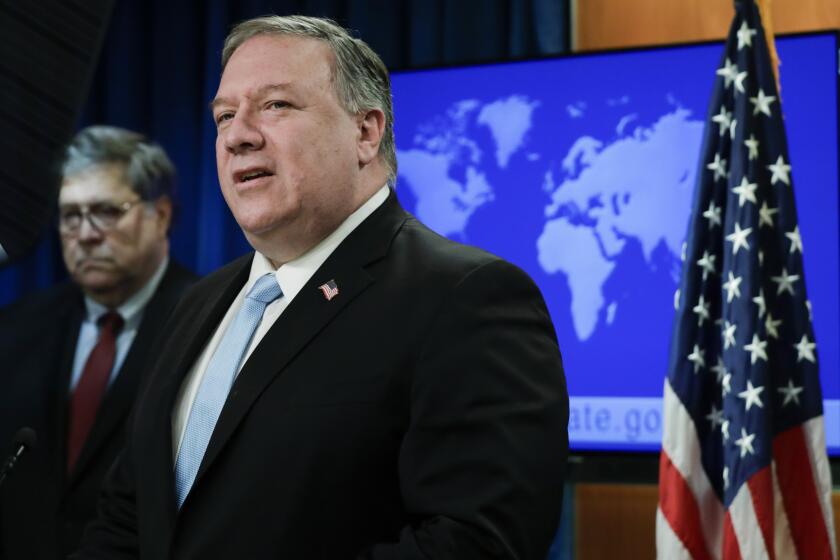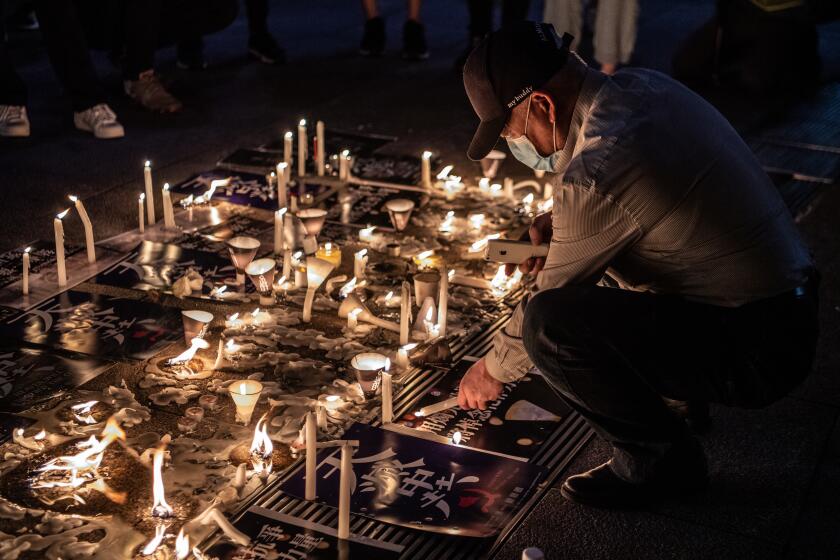Hong Kong’s new national security law takes effect on anniversary of handover
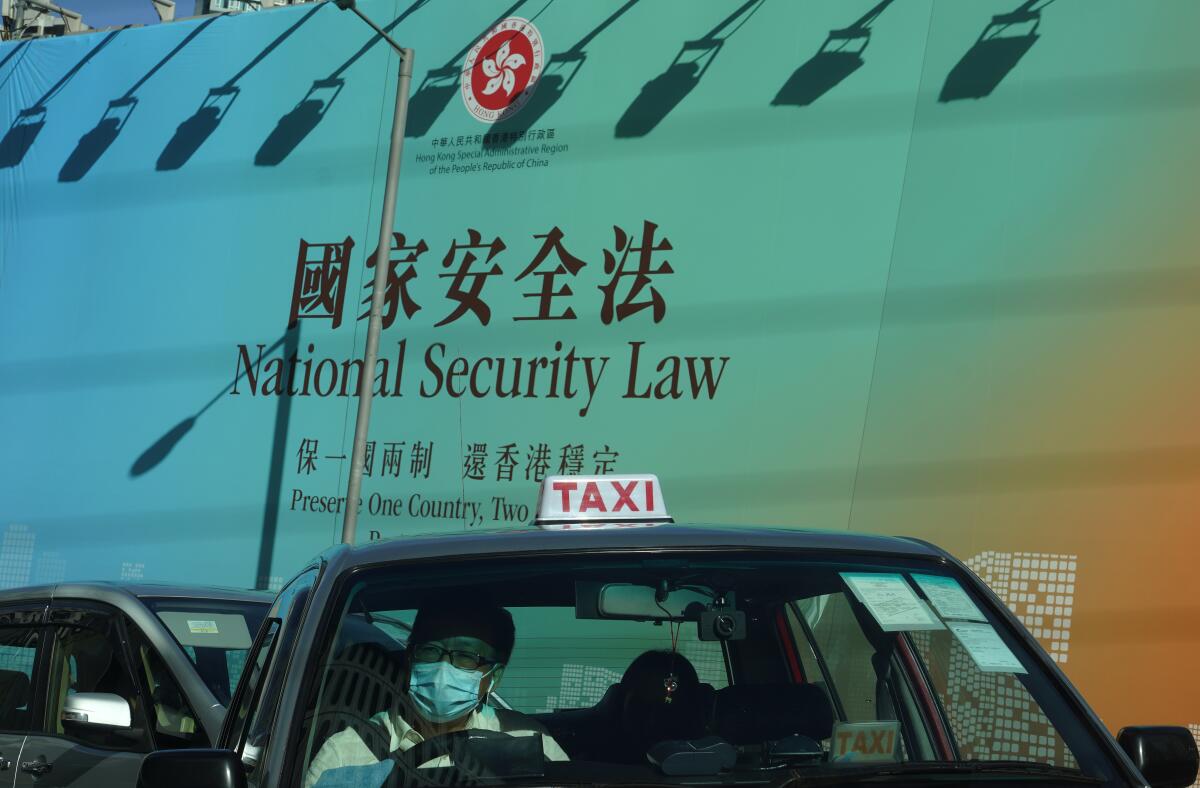
- Share via
SINGAPORE — One year ago, protesters commemorated the anniversary of Britain’s handover of Hong Kong to China by storming the city’s legislature and spray-painting on its walls: “Hong Kong is not China.”
The message was provocative and clear. But as the territory wakes up Wednesday to mark the 23rd anniversary of the transfer, it does so under a contentious new national security law that ensures the semiautonomous city is firmly under China’s control and that makes clear Beijing has no qualms about ignoring international criticism.
That much was evident after details of the law were finally revealed, six weeks after China first proposed the hastily formulated legislation to stifle opposition in the restive territory off southern China that was upsetting Communist Party leader Xi Jinping’s plans to consolidate his power.
What’s unfolding is a law that will probably change the personality of a city and the contours of its beliefs, forcing activists, whose yellow helmets last year stood out amid barrages of tear gas, to rethink strategies or abandon their pro-democracy slogans to an increasingly intolerant government. It is a moment when civil freedoms, which for decades gave Hong Kong an enticing hold on Asia’s imagination, collide with the designs of authoritarianism.
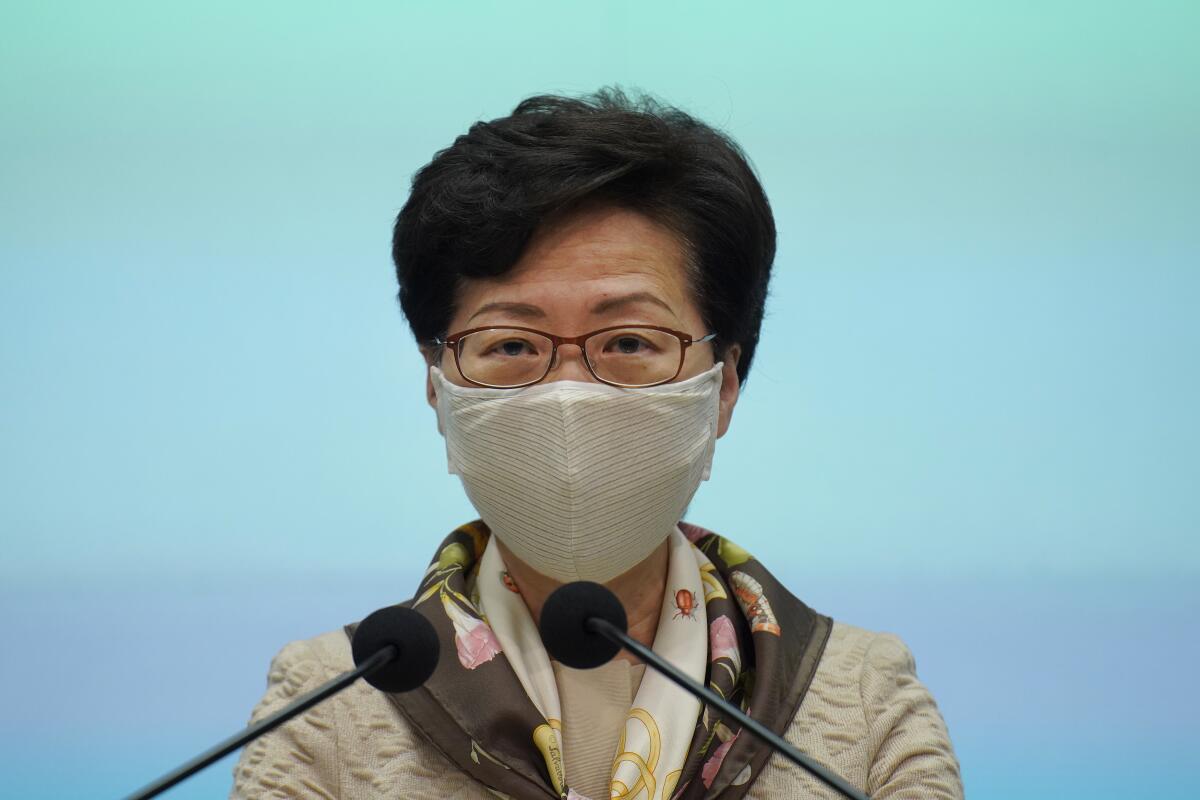
As expected, the law — which targets acts of secession, subversion, terrorism and collusion with foreign forces to endanger national security — gives China broad authority that in effect eliminates the firewall that separates Hong Kong from the mainland.
Police made their first arrest under the new law Wednesday within hours of its going into effect, hustling away a protester who carried a flag calling for Hong Kong’s independence, the Associated Press reported. The man was arrested after police issued multiple warnings to demonstrators in the Causeway Bay shopping district that they might be in violation of the law, according to a police statement on Twitter.
Authorities later arrested a woman for holding up a sign displaying the British flag and calling for Hong Kong’s independence.
In all, more than 180 people at the protest were arrested, some on the basis of the new law, the police said on Facebook.
The new statute paves the way for the establishment of a new security agency that will operate in secrecy and supersede local jurisdiction. Mainland authorities will oversee cases deemed vital to national security. Journalists and members of the public will be banned from observing such cases. Damaging transportation vehicles will be considered an act of terrorism. Companies that break the law will be fined; foreigners and non-permanent residents who violate it will be deported.
The maximum penalty for offenders is life in prison. The law is not retroactive.
John Lee, Hong Kong’s secretary of security, confirmed in a statement that the city’s police would establish a special unit to enforce the national security law — a move that heightens fears that a police force accused of rampant abuse the last year will be handed powerful surveillance powers in concert with Chinese state security.
Critics say those measures collectively violate an agreement China signed with Britain ensuring Hong Kong enjoyed a high degree of autonomy for 50 years after the 1997 handover. Freedoms of press, speech and assembly are supposed to be guaranteed in Hong Kong, though all have faced varying degrees of suppression as Beijing has tried to expand its reach.
Britain, the European Union, Japan and Taiwan all expressed dismay over the new law’s passage. The United States imposed visa restrictions on Chinese officials determined to have played a part in Hong Kong’s diminished autonomy. It also blocked exports of defense equipment and some technology to the territory.
The new law will stifle dissent in a city where millions of protesters demanded autonomy from China. Hong Kong’s future as a global financial hub is now unclear.
Lawmakers in Hong Kong were never consulted about the law, which the Hong Kong Bar Assn. has called unconstitutional. The territory’s chief executive, Carrie Lam, and other pro-Beijing politicians expressed unyielding support for its implementation despite never knowing what exactly was in it.
Stanley Ng, a Hong Kong delegate to China’s National People’s Congress, said in a video post that the demise of the opposition parties proved the effectiveness of the national security law as a deterrent and a form of intimidation, according to Agence France-Presse.
“The speed and secrecy with which China has pushed through this legislation intensifies the fear that Beijing has calculatingly created a weapon of repression to be used against government critics, including people who are merely expressing their views or protesting peacefully,” said Joshua Rosenzweig, head of Amnesty International’s China Team.
“The fact that the Chinese authorities have now passed this law without the people of Hong Kong being able to see it tells you a lot about their intentions,” Rosenzweig added. “Their aim is to govern Hong Kong through fear from this point forward.”
The legislation’s arrival is a bitter pill. The protests that erupted last year were over a bill that would have allowed extraditions to China. After the proposal’s withdrawal, extraditions are now just a small feature of the new national security law, which gives Beijing sweeping powers to arrest suspects. In anticipation of a possible crackdown, many young activists have fled in recent years to Taiwan and elsewhere.
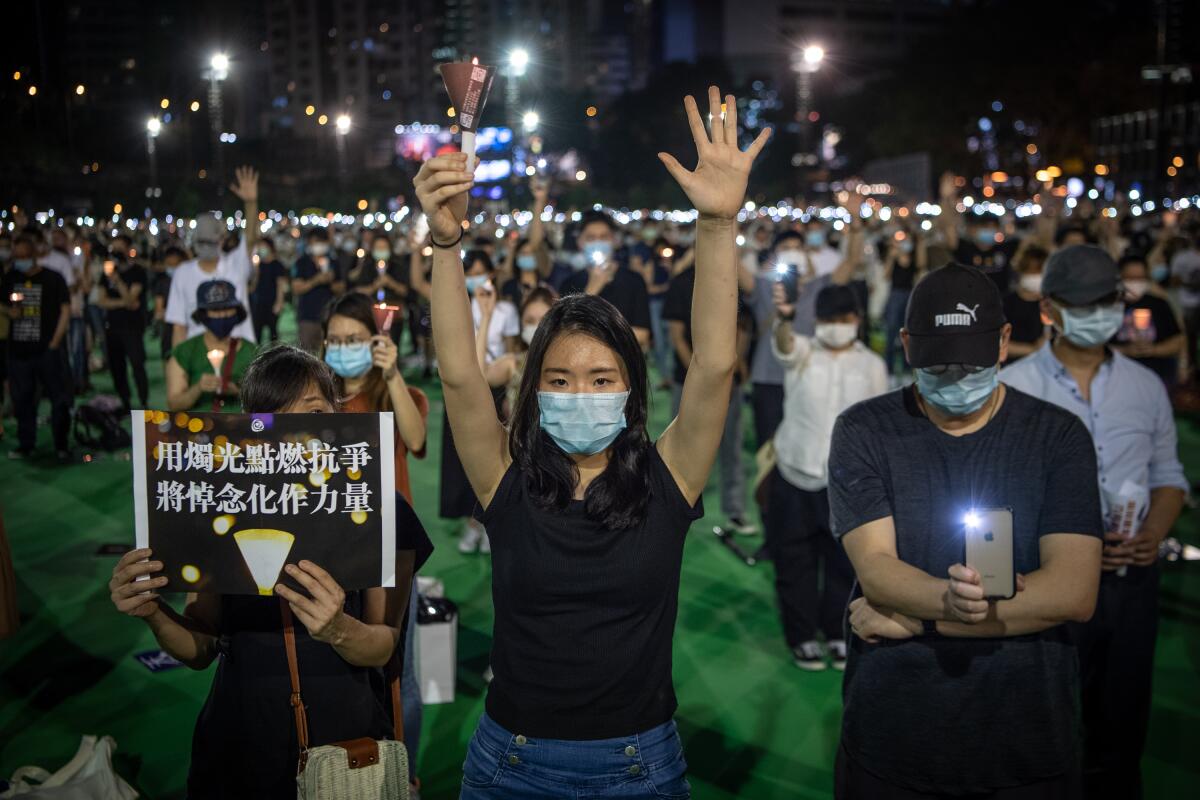
Protesters had vowed to make their voices heard Wednesday despite a prohibition on demonstrations on the sensitive anniversary. Police banned the march, citing public health concerns amid the COVID-19 pandemic. Thousands of officers are expected to patrol the city in anticipation of protesters defying the ban.
Protests have been held every July 1 since 1997, most notably in 2003, when an estimated 500,000 demonstrators successfully pressured the Hong Kong government to rescind its first attempt at passing a local national security law, known as Article 23. China’s national security law bypasses Hong Kong’s mini-constitution, known as the Basic Law.
“Everyone knows that public health is only an excuse to deprive our civil liberties under the National Security Law,” Civil Human Rights Front, a group that has organized the march every year since 1997, said in a statement. “The banning of July 1 rally marks the end of an age of Hong Kong.”
Hong Kong’s leaders have defended the Chinese national security law by arguing most countries have similar legislation, including the U.S. But legal experts say the comparison isn’t apt: Democracies have separations of power and independent judiciaries that ensure such laws can’t be wielded arbitrarily to target government critics, unlike in China.
Increasing repression from Beijing has united two generations in Hong Kong, those whose lives pivoted in 1989 and those who weren’t even born then.
As the ground shifted beneath them after news of the law’s passage Tuesday, Hong Kongers sprang into action reminiscent of a low-intensity fall of Saigon in the 1970s by choosing to flee or gird themselves for a new order that redraws the boundaries of everyday life.
Employees at a popular diner for pro-democracy activists began stripping protest art from its walls and declared on social media it could no longer belong to a band of businesses in the so-called yellow economic circle, the color of the protest movement.
Joshua Wong, the boyish face of that movement since 2014, disbanded the political party he co-founded, Demosisto, and implored the international community to defend Hong Kong’s “last bit of freedom.”
Another anti-Beijing political party, the Hong Kong Independence Union, also disbanded. Its founder, Wayne Chan, who was arrested for participating in an illegal protest, reportedly jumped bail and left Hong Kong.
Leung Chun-ying, Hong Kong’s former chief executive and a staunch pro-Beijing figure, offered a $130,000 reward for help arresting offenders such as Chan who flee the territory.
More to Read
Sign up for Essential California
The most important California stories and recommendations in your inbox every morning.
You may occasionally receive promotional content from the Los Angeles Times.
